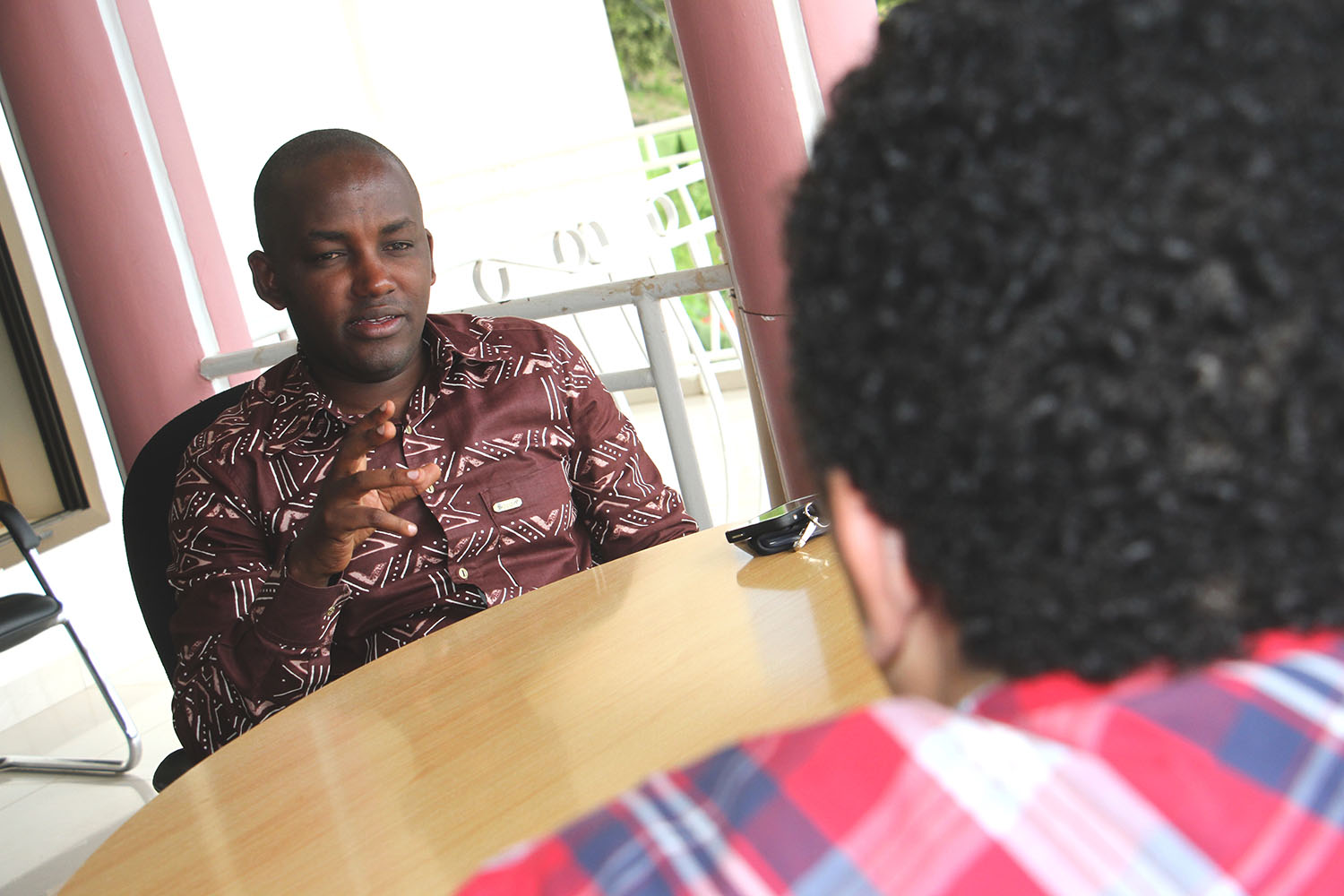There has been both a national and global call to prioritize youth in the development agenda, a call that has been lauded by many. However, even before this call was made, Never Again Rwanda, from its inception in 2002, was an organization of youth and for youth. Never Again Rwanda (NAR), an organization that was formed by three young university students then, had a motive to work with fellow young people to build peace in their divided university community.
The first major activity that NAR conducted was in 2004, where an inter-school competition on writing songs and poems attracted more than five hundred schools. Over a decade later, NAR has enjoyed massive success while working with the young people in various programs and projects to include; societal healing, participatory governance, education and sustainable livelihood among many other activities. Peace Insight’s Eric Birori talked to the Omar Ndizeye, the youth coordinator at Never Again Rwanda to understand why the organization prioritizes the young people and what it means for the sustainability of the current programs.
Why does NAR work with youth?
We work with young people to empower them to become active citizens and to engage them in the decision making processes as well as to ensure they are championing the values of tolerance in the journey to build sustainable and peaceful society.
Why engage youth in political and democratic processes?
Young people have different challenges to include poverty, exclusion from the older generation and limited knowledge in politics, which hinder their participation in various activities. Thus, NAR engages young people to contribute to the promotion of peaceful dialogue and democratic values through human rights based approaches and influence their understanding on the rights of the most vulnerable groups in Rwanda. NAR engages them to become active citizens at an early stage and to empower them to become leaders of today and tomorrow and they gain experience through their engagement in the decision making processes.
You work with youth in affiliated clubs and associations; what has been achieved from these clubs so far?
We have 96 clubs and associations around the country, through these clubs, youth exercise their participation in youth led-activities and projects in their respective environments, to include; debates, public speaking competitions, commemoration activities, charity initiatives, participatory theatre, and traditional dance among others.
So far, the clubs have registered tremendous successes, like, those who are engaged in arts and participatory theater such as Isoko Arts, Imfura Arts, Mwanga troupes among others, have worked on different projects that have positively impacted the community. Others have amongst themselves started saving schemes that have given birth to income generating activities and employed some among them.
Youth use these clubs as spaces of peace, whey they help each other to heal from their traumatic past and eventually take the message to their particular societies to spread the gospel of peace and harmonious living.
What youth gain from the spaces for peace?
One of the most important values of Never Again Rwanda is diversity; this value reflects within our clubs, all the clubs are composed of young people from different backgrounds as the greatest foundation of unity. In our clubs youth are able to share, tolerate and embrace each other’s opinions.
Most of our clubs discuss peace building activities, through the use of participatory theater, songs and poems that reflect about the country’s history. Every year, most of NAR’s affiliated clubs organize commemoration activities followed by participatory dialogues on Rwanda’s historical background as well as devise mechanisms to prevent the future conflicts.
What diversity do you look for in those affiliated clubs?
Every historical event creates categories among the people. The Post-genocide Rwanda had various categories and stereotypes among Rwandans. Among the young population, there are those who were born before Genocide, but were very young then, those born after the Genocide and those who belong to the families of the perpetrators, the genocide survivors, those born out of rape and others who were born from exile. Talking about diversity is to mention all those categories from different backgrounds that form our country. We always encourage young people to embrace that diversity but also respect each other throughout debates and public speaking as well as in expressing their opinions.
How do you help youth to use their skills and talents in shaping their communities?
This year we are organizing the youth arts competition and youth will be motivated to use their skills and talents to champion for peace and participatory governance. Also, some of the young people are encouraged to organize their own events in their communities and Never Again Rwanda partners with them whenever possible because it’s through such events that networks and opportunities are created.
One example is in 2016, when Never Again Rwanda organized a training on participatory theater and poems, an event that led youth to create Mwanga troop which has over time made an incredible impact in performing arts for peace, even beyond their community.
How do you intend to sustain young people’s clubs?
Through mentorship and close follow-ups of the youth clubs and associations, we will keep encouraging them to make a difference in their communities.


